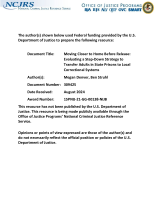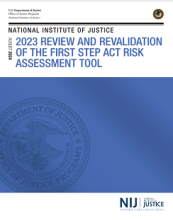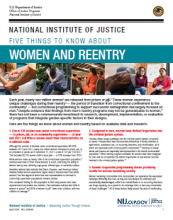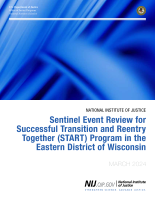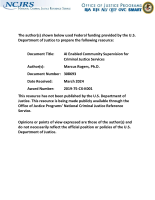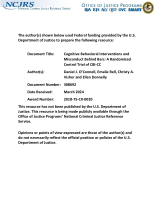Reentry
Reducing Collateral Consequences with Records Relief: Organizational Readiness for Implementing Strategies in State Courts
Moving Closer to Home Before Release: Evaluating a Step-Down Strategy to Transfer Adults in State Prisons to Local Correctional Systems
FY23 OJP Correctional Education Evaluation Package
Five Things About Women and Reentry
2023 Review and Revalidation of the First Step Act Risk Assessment Tool
Redesigning Life in U.S. Prisons
The prison system in the U.S. typically places a heavy emphasis on security, control, and punishment, and this foundation can create an adversarial culture within correctional facilities — incarcerated individuals versus correctional staff. But what if that culture could change? What would it look like? How would it impact not only incarcerated individuals but also correctional officers and other staff?
Applying a Developmental Evaluation Approach to Address Community Safety and Health Challenges of Reintegration Programs in the USA
De-escalation Training: What Works, Implementation Lessons, and Taking It to Scale; Plenary at the 2023 NIJ Research Conference
Supporting Women’s Reentry from Incarceration: Discussing Promising Practices & Future Research
Sentinel Event Review of Federal Reentry Program
Five Things to Know About Women and Reentry
Practices and Needs in Reintegration Programs for Violent Extremist Offenders in the United States: The Extremist Perspective
Research and Practitioner Perspectives on the Rehabilitation and Reintegration of Violent Extremists
Sentinel Event Review for Successful Transition and Reentry Together (START) Program in the Eastern District of Wisconsin
Supporting Women’s Reentry from Incarceration: A Discussion of Promising Practices and Opportunities for Future Research



